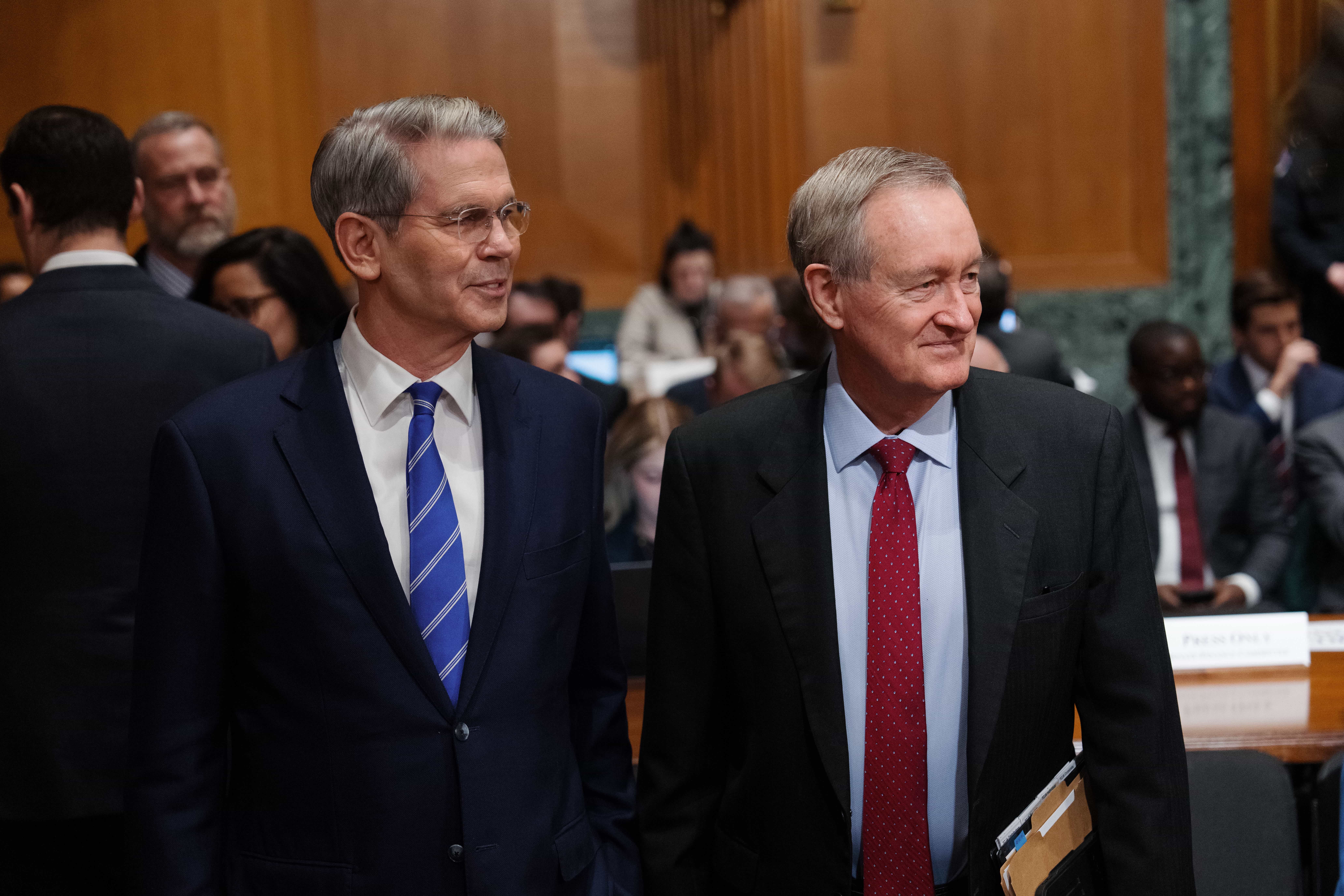Crapo: Bessent Exceptionally Qualified to be Treasury Secretary
Washington, D.C.--At the nomination hearing of Scott Bessent to be Secretary of the U.S. Department of the Treasury, U.S. Senate Finance Committee Chairman Mike Crapo (R-Idaho) praised Mr. Bessent’s exceptional qualifications to lead the agency and reaffirmed his commitment for a swift confirmation.
At the conclusion of the hearing, Crapo said, “When it comes to your qualifications to be the next Secretary of the Treasury, there’s no room for debate. Your background and training are tailor made for this role, and your character and demeanor are self-evident. You have satisfied our due diligence process. In prior congresses, I have joined with many of my Republican colleagues in voting for well-qualified Treasury Secretary candidates put forward by a Democrat president, even though I didn’t agree with all the positions for which they advocated. Your candidacy ought to enjoy similar support, and I’m going to encourage my colleagues on both sides of the aisle to join with me in advancing your nomination.”
Chairman Crapo also underscored the critical need to extend the Tax Cuts and Jobs Act (TCJA) to avert a devastating tax hike of more than $4 trillion that would disproportionately hit lower- and middle-income Americans. Echoing Senator Crapo’s concerns, Mr. Bessent praised the TCJA's role in driving economic growth, calling its extension “the single most important economic issue of the day.”

Click here to watch Senator Crapo’s opening statement and here to watch Crapo question Bessent.
Crapo and Bessent on the importance of preventing a more-than $4 trillion tax hike on working-class Americans:
Crapo countered a mischaracterization of the Tax Cut and Jobs Act, which is current law, as being a “tax cut for the wealthy:”
I appreciate you, Mr. Bessent, for noting that there will be a more than $4 trillion dollar tax increase if we do not extend this law. And a point that I would remind all of my colleagues is if that more than $4 trillion dollar tax increase happens, it's not just going to be something that impacts the wealthy. $2.6 trillion of it, the majority of it, falls on people who make less than $400,000. That's the number that President Biden chose to say he wanted to protect. $2.6 trillion of this tax [increase] hits those making less than $400,000. . . This is not a tax cut for the wealthy that we're talking about, it is a tax increase on all Americans, the majority of whom are in the lower- and middle-income categories.
Bessent:
This is the single most important economic issue of the day. This is pass / fail. But if we do not fix these tax cuts, if we do not renew and extend, then we will be facing an economic calamity, and as always, with financial instability, that falls on the middle- and working-class people. We will see a gigantic middle class tax increase. We will see the child tax credit halve. We will see the deductions halve. So—it will be what we call in economics—it has the potential for a sudden stop. And as I said, traditionally, with these sudden stops, it falls among working Americans.
Crapo:
It seems to me that as we are talking about what to do for America, that protecting America from a 1 percent reduction versus a 1 percent growth in GDP is a critical objective. Could you just give a little bit of perspective?
Bessent:
Senator, I will just say that we saw the power of these tax cuts in 2018, 2019 and going into January of 2020 before they were interrupted by COVID-19, and the great success that we had.
Next Article Previous Article
